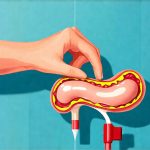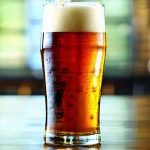The seemingly innocuous act of socializing often revolves around alcohol consumption for many adults. From celebratory toasts to casual after-work drinks, alcoholic beverages are deeply ingrained in social rituals across cultures. While the immediate effects – loosened inhibitions and a sense of camaraderie – can be appealing, the subsequent impact on our digestive system is frequently overlooked. Many individuals experience noticeable disruption to their stool consistency and regularity following alcohol-based social events, ranging from mild discomfort to more significant gastrointestinal distress. This isn’t merely an inconvenience; it’s a signal that something within our body is reacting to the physiological stress imposed by alcohol and its associated behaviors.
Understanding this connection requires moving beyond simply blaming “the hangover.” It involves acknowledging how alcohol interferes with normal digestive processes, alters gut motility, and potentially impacts the delicate balance of the gut microbiome. Furthermore, the dietary choices often accompanying social drinking – rich foods, sugary mixers, and late-night snacking – exacerbate these effects. This article will delve into the mechanisms behind stool disruption following alcohol consumption at social events, exploring the contributing factors and offering insights into mitigation strategies, focusing on understanding rather than providing prescriptive medical advice. It’s crucial to remember that individual responses vary significantly based on factors like tolerance, quantity consumed, existing health conditions, and dietary habits.
The Physiological Impact of Alcohol on Digestion
Alcohol fundamentally disrupts several key aspects of the digestive system. Its primary effect isn’t necessarily direct irritation of the gut lining (though this can occur with excessive consumption), but rather its impact on motility – the movement of food through the digestive tract. Alcohol accelerates gastric emptying, meaning food moves from the stomach to the small intestine much faster than usual. This rapid transit time doesn’t allow for adequate nutrient absorption and can overwhelm the small intestine’s capacity to process incoming chyme (partially digested food). The large intestine then receives a larger volume of undigested material in a shorter period, contributing to potential changes in stool consistency.
Beyond motility, alcohol significantly affects intestinal permeability, often referred to as “leaky gut.” Alcohol increases the spaces between cells in the intestinal lining, making it easier for bacteria and toxins to pass from the gut into the bloodstream. This triggers an inflammatory response which can further disrupt digestive function and contribute to symptoms like bloating, cramping, and altered bowel habits. The liver, responsible for metabolizing alcohol, becomes preoccupied with processing ethanol rather than performing its usual detoxifying functions, impacting overall bodily homeostasis and potentially exacerbating digestive issues. Understanding these impacts may require looking at top early signs from stool tests to identify underlying issues.
Finally, it’s important to consider the role of dehydration. Alcohol is a diuretic, meaning it increases urine production and can lead to fluid loss. Dehydration directly impacts stool consistency, making it harder and more difficult to pass. Moreover, many alcoholic beverages lack essential electrolytes, further contributing to dehydration and imbalances that disrupt digestive processes. The combination of accelerated motility, increased intestinal permeability, and dehydration creates a perfect storm for stool disruption following alcohol consumption. A basic stool analysis can help pinpoint sensitivities.
Dietary Contributions & Social Eating Habits
The foods we typically consume during social events involving alcohol often amplify the digestive disturbances caused by alcohol itself. Many social gatherings feature rich, fatty foods – appetizers, fried snacks, desserts – which are inherently more difficult to digest and can exacerbate gastrointestinal issues. The combination of fat and alcohol slows down gastric emptying even further initially, then causes a rapid acceleration later, creating inconsistent digestion patterns. Sugary mixers in cocktails or the consumption of sugary sodas alongside alcoholic beverages introduce additional challenges for the digestive system. Excess sugar feeds harmful bacteria in the gut, potentially disrupting the microbiome balance.
- Ordering pizza and appetizers when out drinking
- Consuming highly processed snack foods during parties
- Drinking sugary mixed drinks rather than neat spirits or wine
These dietary choices contribute to inflammation and further compromise intestinal permeability. Additionally, social events often involve late-night eating, which disrupts the body’s natural circadian rhythm and can negatively impact digestion. The body naturally slows down digestive processes during sleep; forcing it to digest a large meal late at night can lead to bloating, discomfort, and altered bowel habits. It’s not always about what we eat, but when and how much in the context of alcohol consumption. Planning ahead using smart reflux hacks can be very helpful.
The Gut Microbiome & Alcohol’s Influence
The gut microbiome – the trillions of bacteria residing in our digestive tract – plays a critical role in overall health, including digestion. Alcohol has been shown to significantly disrupt the composition and function of this complex ecosystem. It can reduce the abundance of beneficial bacteria (like Bifidobacteria and Lactobacilli) while promoting the growth of potentially harmful bacteria. This imbalance, known as dysbiosis, can lead to a variety of digestive symptoms including diarrhea, constipation, bloating, and abdominal pain.
Dysbiosis doesn’t just impact digestion; it also affects immune function and overall well-being. A compromised gut microbiome is less effective at producing essential vitamins, metabolizing fiber, and protecting against pathogens. Alcohol’s effects on intestinal permeability further exacerbate this issue by allowing harmful bacteria to translocate from the gut into the bloodstream, triggering an inflammatory response that damages the gut lining and disrupts microbial balance even more. Restoring a healthy gut microbiome after periods of heavy alcohol consumption requires time, dietary changes (probiotic-rich foods), and potentially probiotic supplementation – though individual responses to supplements vary. Tracking digestive data can help you see patterns.
Mitigation Strategies & Proactive Approaches
While complete avoidance of alcohol is one option, it’s not realistic for many people. Instead, adopting proactive strategies can help minimize the digestive disruption associated with social drinking. Hydration is paramount. Alternating alcoholic beverages with water helps counteract the diuretic effect of alcohol and supports healthy digestion. Choosing lower-sugar mixers or opting for neat spirits with sparkling water can also reduce the burden on the digestive system.
- Prioritize mindful eating: Opt for lighter, healthier food choices before, during, and after social events.
- Consider probiotic supplementation: While not a cure-all, probiotics may help restore gut microbiome balance (consult with healthcare professional).
- Allow for adequate rest: Ensure sufficient sleep to allow the digestive system to recover.
Furthermore, paying attention to portion sizes is crucial. Consuming alcohol in moderation reduces the overall stress on the body and minimizes its impact on digestion. Finally, recognizing individual tolerance levels and adjusting consumption accordingly can prevent excessive disruption. It’s about finding a balance between enjoying social events and prioritizing digestive health. The goal isn’t necessarily eliminating alcohol entirely, but rather being mindful of its effects and taking steps to mitigate them. For those with GERD, eating out safely is possible with planning. Understanding your triggers and limits when managing dietary limits will help you enjoy social events without sacrificing digestive health. And if symptoms persist, consider what to expect from a comprehensive analysis.


















